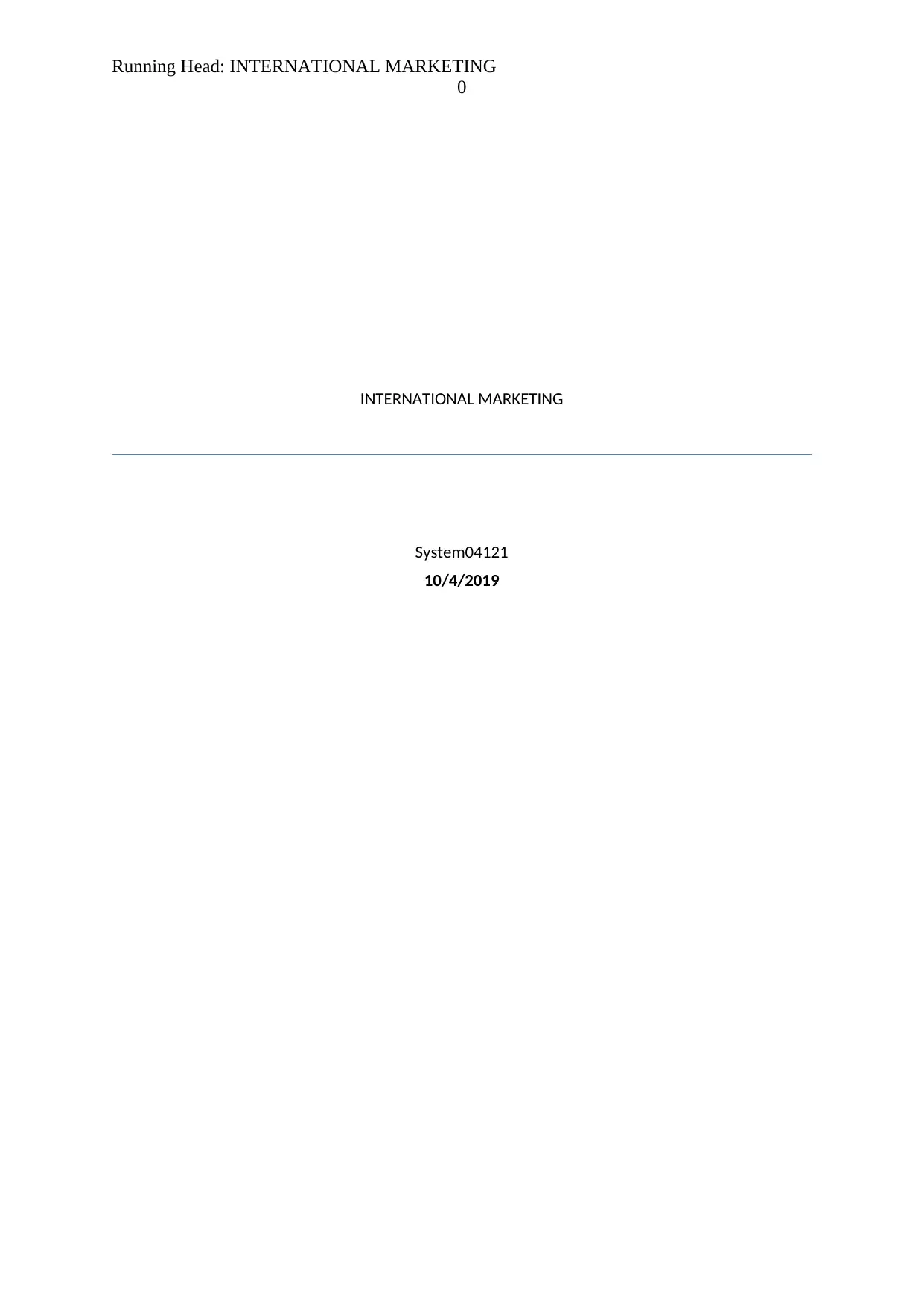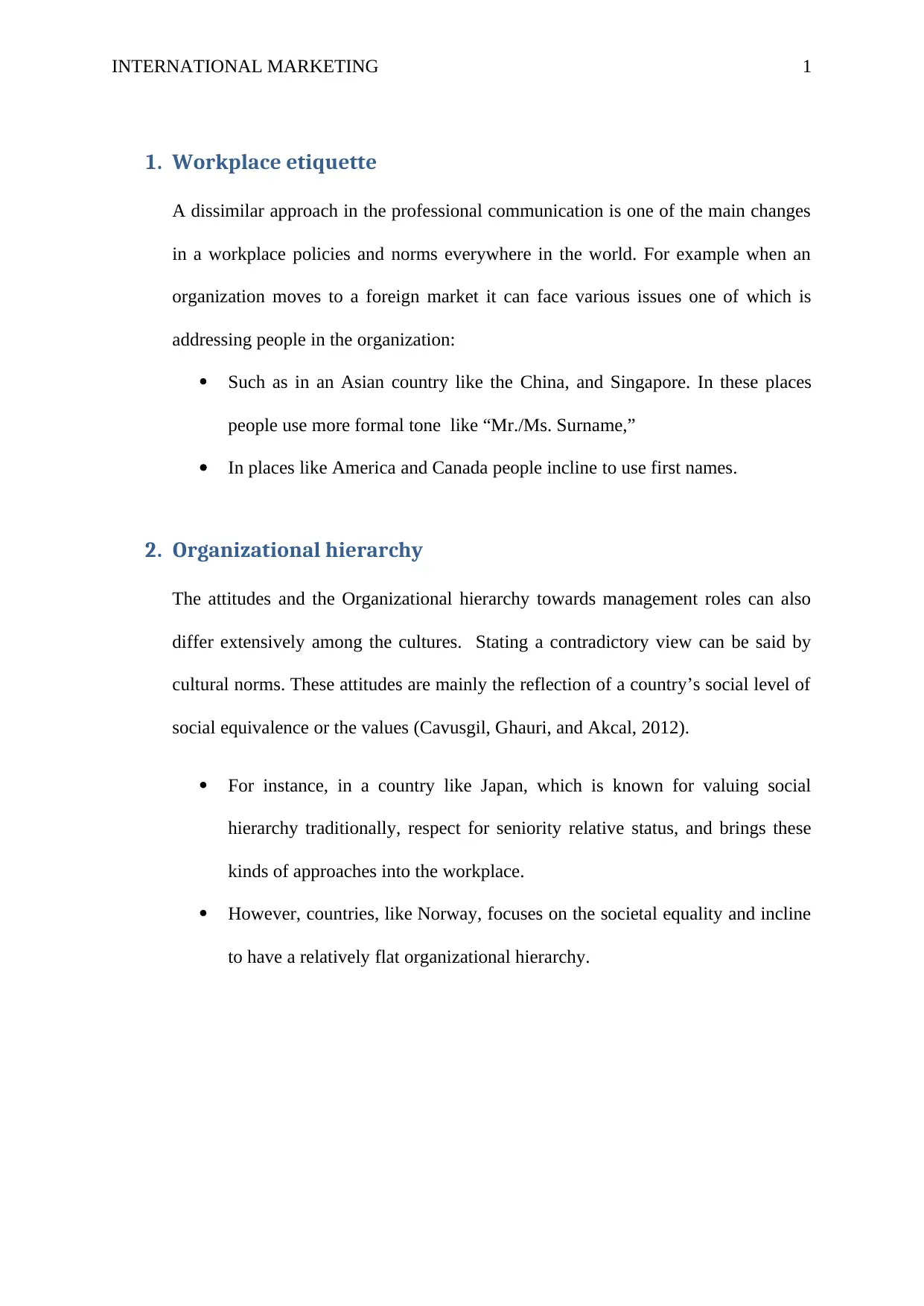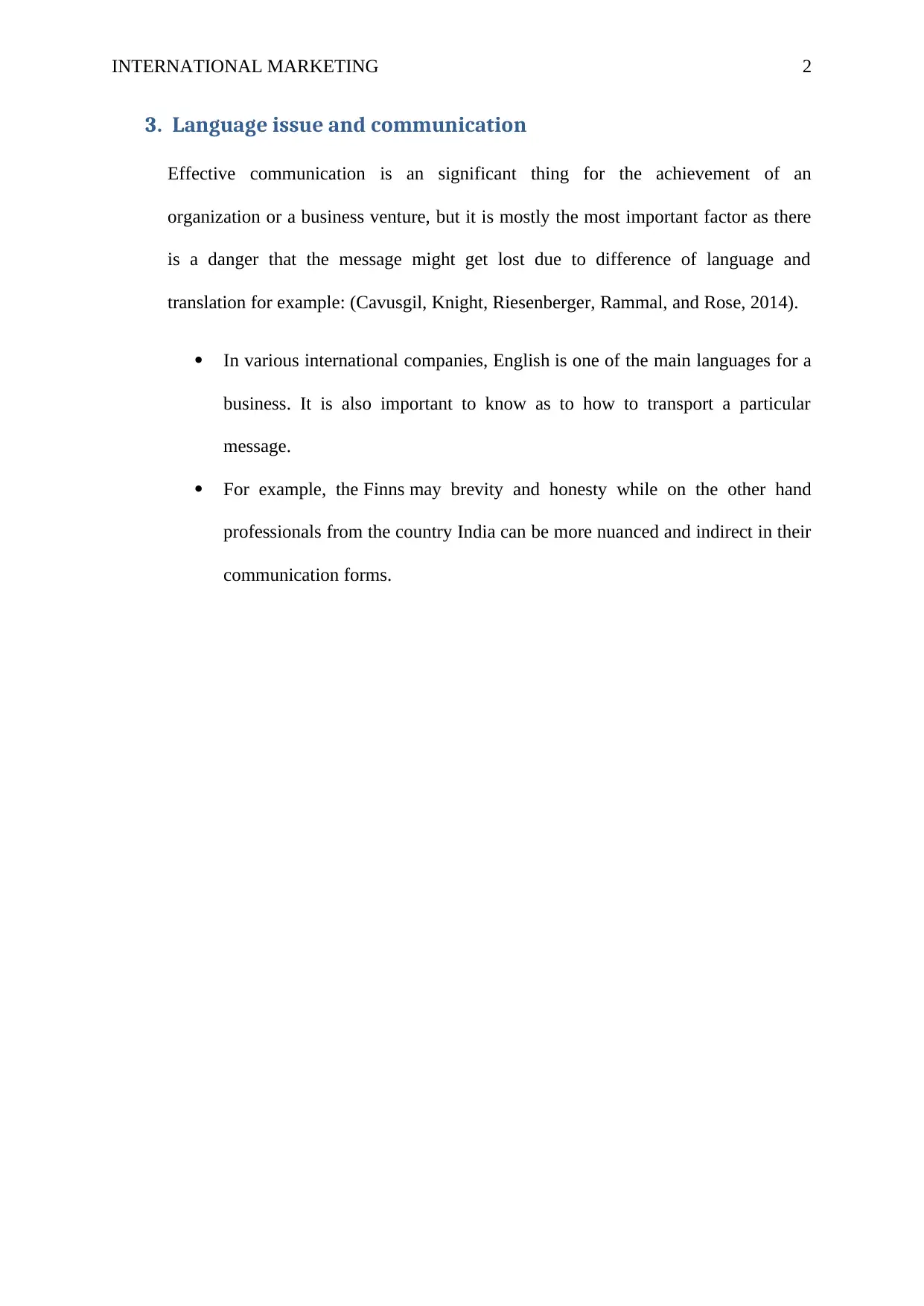International Marketing: Impact of Culture on Business Practices
VerifiedAdded on 2022/09/30
|4
|402
|21
Report
AI Summary
This report delves into the multifaceted realm of international marketing, examining the crucial role of cultural understanding in global business. It begins by highlighting the significance of workplace etiquette, emphasizing how cultural norms shape communication styles and professional interactions across different countries. The report then explores the influence of organizational hierarchy on business practices, contrasting approaches in countries like Japan, which values seniority, with those like Norway, which prioritize equality. Furthermore, it addresses the challenges of effective communication in international settings, particularly the impact of language barriers and the need for nuanced messaging. By providing examples and referencing relevant literature, the report offers insights into navigating cultural complexities to ensure successful international business ventures. The report underscores the importance of adapting strategies to respect cultural differences, manage communication effectively, and understand organizational structures for global success.
1 out of 4







![[object Object]](/_next/static/media/star-bottom.7253800d.svg)